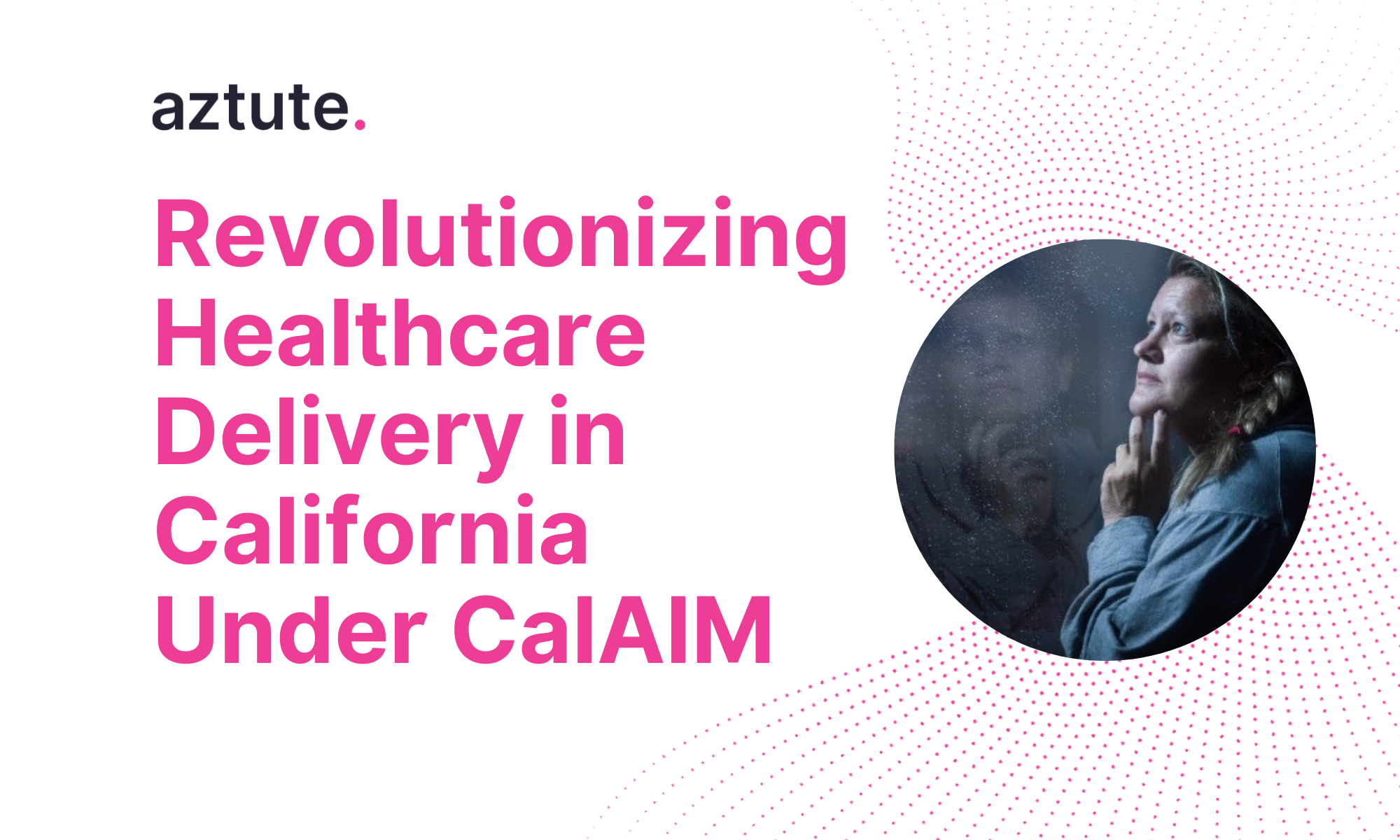Revolutionizing Healthcare Delivery in California Under CalAIM
The California Department of Health Care Services (DHCS) is spearheading a groundbreaking initiative called California Advancing and Innovating Medi-Cal (CalAIM), aimed at transforming the state's Medicaid program, Medi-Cal, and improving health outcomes for its beneficiaries. CalAIM is a multi-year effort with goals ranging from enhancing access to care and addressing health disparities to streamlining administrative processes and promoting value-based care models. By ensuring equitable access to high-quality healthcare and fostering better overall health outcomes, CalAIM is poised to make a significant impact on the lives of those with complex medical, behavioral health, and social needs throughout California.
Stakeholders
Collaboration between stakeholders is essential for the successful delivery of CalAIM as it ensures coordinated and integrated care for beneficiaries. Collaboration facilitates seamless care coordination, enhances communication, and enables the effective utilization of resources, leading to improved access, better health outcomes, and a more comprehensive and person-centered approach to care delivery under CalAIM. Some of the key stakeholders involved in the delivery of care includes:
California DHCS: The DHCS is responsible for overseeing the program and coordinating efforts among stakeholders.
Health Plans: Health plans play a pivotal role in Cal AIM by collaborating with healthcare providers, coordinating care, implementing population health strategies, and ensuring the delivery of comprehensive and efficient healthcare services to beneficiaries.
CalAIM Service Providers: ECM/Community Supports (CS) & additional CalAIM service providers specialize in managing care for beneficiaries with complex needs.
Healthcare Providers: Hospitals, clinics, and specialty care providers involved in CalAIM.
Public Health Agencies: Public health plays a crucial role in CalAIM by promoting and implementing strategies to improve community health outcomes, address health disparities, and enhance healthcare access and quality for Californians.
Community-Based Organizations (CBOs) play a critical role in CalAIM by providing social services to address SDOH and support the well-being of beneficiaries. They collaborate with health plans and CalAIM service providers to connect individuals with resources such as housing assistance, food programs, and transportation services, aiming to improve overall health outcomes.
CalAIM is Unique and Challenging:
CalAIM presents unique challenges due to its scale, complexity, and the integration of social determinants of health. Coordinating multiple stakeholders, ensuring effective communication, addressing data privacy concerns, integrating diverse healthcare systems, managing the transition to new care models, and navigating regulatory requirements are key challenges. Additionally, CalAIM requires seamless collaboration among health plans, CalAIM service providers, healthcare providers, and social services providers to deliver coordinated and person-centric care.
While many challenges faced by stakeholders align with other managed care plans, CalAIM has distinct hurdles:
Scale and Complexity: CalAIM's large-scale transformation of the Medicaid program presents challenges in coordination, implementation, and managing diverse population needs.
Integration of Social Determinants of Health (SDOH): Addressing SDOH to improve health outcomes is a key focus of CalAIM. Integrating SDOH data and collaborating with social services providers poses challenges in data sharing and resource accessibility.
System Integration and Interoperability: Achieving seamless integration among various healthcare systems, such as electronic health records and public health databases, can be challenging due to differing technologies and data standards.
Coordinated Care and Collaboration: Enhancing care coordination among multiple stakeholders operating under different systems and processes is a challenge for CalAIM.
Transition to Value-Based Care: Shifting to value-based care models necessitates changes in reimbursement structures, performance metrics, and care delivery approaches, requiring stakeholder buy-in.
Regulatory Compliance: Operating within a complex regulatory environment, CalAIM stakeholders must meet regulatory requirements and ensure privacy and security compliance.
How is Aztute Solution addressing these challenges?
Aztute, a leading healthcare technology provider, offers a platform specifically designed to meet the unique needs of service providers and address CalAIM challenges. This modern and comprehensive platform offers tailored solutions that meet the unique requirements of care delivery models, health plans, and most importantly, members' needs. The following capabilities of our secure and flexible platform empower you to optimize care coordination, improve outcomes, and ensure a seamless experience for your members.
Comprehensive Case Management: Streamlining workflows, improves efficiency, and enhances care management through robust functionality tailored to CalAIM's requirements.
Customizable Care Plans: Providers can create and track personalized care plans, ensuring member-centric care delivery and improved health outcomes.
Collaboration Tools: Facilitates seamless communication and collaboration among stakeholders, enabling coordinated care and better outcomes.
SDOH Integration: Provides providers with comprehensive SDOH data, connecting members with community resources and promoting holistic care.
Advanced Analytics and Data Insights: Leverages advanced analytics to empower ECM providers in making data-driven decisions, optimizing care coordination, and improving health outcomes.
Secure Data Management: Ensures secure storage and sharing of healthcare data, enabling seamless data exchange while maintaining privacy and security.
Member Engagement and Education: Includes public apps and kiosks that engage members and empower them to actively participate in their own health. This improves member engagement, promotes health education, and encourages adherence to care plans, resulting in better health outcomes.
By leveraging these core capabilities, Aztute's platform uniquely addresses the challenges faced by stakeholders in CalAIM, providing tangible benefits for the following stakeholders:
Health plans: Streamlined care management, enhanced collaboration, and improved efficiency for better resource utilization and financial outcomes.
CalAIM Service: Comprehensive case management, customizable care plans, and collaboration tools for personalized and coordinated care, leading to improved member health outcomes.
Other healthcare providers: Seamless integration enables efficient communication and coordinated care with CalAIM providers and health plans.
Social services providers: Streamlined referrals, better coordination, and improved access to member information ensure timely and appropriate support services.
Public health agencies: Enhanced data sharing, collaboration, and analytics support data analysis, addressing social determinants, and improving population health outcomes.
Members: Giving them a seamless user-experience and autonomy of over their own health
Aztute's platform empowers stakeholders to streamline care, improve coordination, address SDOH, make data-driven decisions, enhance member engagement, and promote better health outcomes for Medi-Cal beneficiaries within the CalAIM program, transforming the healthcare experience for all.




